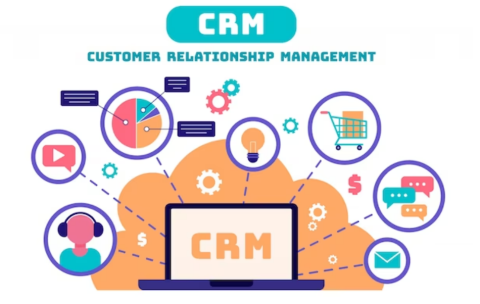Popular Instructors
All Strategic Planning Courses
Tableau for Business Intelligence – Business Intelligence with Tableau
Tableau for Business Intelligence – Business Intelligence with Tableau is an …
What you'll learn
Week 1: Introduction to Tableau and Data Visualization (4 Hours)
Session 1 (2 Hours): Fundamentals of Tableau
Introduction to Business Intelligence and Data Visualization
Overview of Tableau: Features and Capabilities
Installing Tableau and Navigating the Interface
Session 2 (2 Hours): Basic Data Visualization Concepts
Principles of Effective Data Visualization
Connecting to Data Sources in Tableau
Creating Basic Charts and Graphs
Week 2: Intermediate Tableau Skills and Visualization Techniques (6 Hours)
Session 3 (2 Hours): Exploring Data with Tableau
Deep Dive into Tableau Data Handling
Data Preparation and Cleaning in Tableau
Advanced Chart Types and Visualization Techniques
Session 4 (2 Hours): Building Interactive Dashboards
Designing Dashboards for Business Intelligence
Adding Filters, Actions, and Tooltips for Interactivity
Best Practices for Dashboard Layout and Design
Session 5 (2 Hours): Data Storytelling with Tableau
Crafting a Narrative with Data
Techniques for Effective Data Presentation and Storytelling
Utilizing Tableau’s Story Points Feature
Week 3: Advanced Tableau Features and Analytics (6 Hours)
Session 6 (2 Hours): Advanced Data Analysis in Tableau
Advanced Calculations with Tableau (Calculated Fields, Table Calculations)
Using Parameters for Dynamic Visualizations
Introduction to Geographic Mapping in Tableau
Session 7 (2 Hours): Tableau for Business Analytics
Analyzing Business Data in Tableau (Sales, Finance, Marketing)
Time-Series Analysis and Forecasting
Exploring Tableau Statistical Functions
Session 8 (2 Hours): Integrating Tableau with Other Tools
Integrating Tableau with SQL and Other Databases
Utilizing Tableau with Big Data
Exporting and Sharing Tableau Insights
Week 4: Practical Application and Capstone Project (4 Hours)
Session 9 (2 Hours): Implementing Tableau in Business Strategy
Case Studies of Tableau in Business Decision-Making
Ethical Considerations in Data Visualization
Strategies for Effective Use of BI Tools in Organizations
Session 10 (2 Hours): Capstone Project and Course Wrap-Up
Developing a Comprehensive Tableau Project on a Business Case
Presentation of Capstone Projects
Course Summary and Pathways for Further Learning
The course should include a mix of lectures, demonstrations, and practical exercises, with a focus on applying Tableau skills to real-world business scenarios. The capstone project in the final week would allow students to apply their learning to develop a full-fledged Tableau dashboard based on a realistic business dataset, ensuring they understand not only how to use Tableau but also how to apply it strategically in a business context.
Customer Relationship Management (CRM) Systems – Optimizing Engagement: Mastering CRM Dynamics
“Customer Relationship Management (CRM) Systems – Optimizing Engagement: Mastering CRM …
What you'll learn
Week 1: Introduction to CRM and Its Strategic Importance (4 Hours)
Session 1 (2 Hours): Fundamentals of CRM
Introduction to Customer Relationship Management
Evolution of CRM and Its Role in Modern Businesses
Overview of CRM Systems and Technologies
Session 2 (2 Hours): Strategic Importance of CRM
Aligning CRM with Business Strategy
Understanding the Customer Journey
Role of CRM in Customer Retention and Acquisition
Week 2: CRM Systems and Their Functionalities (6 Hours)
Session 3 (2 Hours): Overview of Popular CRM Systems
Comparison of Different CRM Systems (e.g., Salesforce, Microsoft Dynamics, Zoho)
Cloud-based CRM vs. On-premise Solutions
Integration with Other Business Systems
Session 4 (2 Hours): Key Functionalities of CRM Systems
Sales Force Automation
Customer Service and Support
Marketing Automation within CRM
Session 5 (2 Hours): Data Management in CRM
Managing and Segmenting Customer Data
Data Analytics and Reporting Features
Ensuring Data Privacy and Compliance
Week 3: Implementing and Optimizing CRM Systems (6 Hours)
Session 6 (2 Hours): CRM Implementation Strategies
Best Practices for CRM Implementation
Overcoming Common Implementation Challenges
Case Studies of Successful CRM Implementations
Session 7 (2 Hours): User Adoption and Training
Strategies for Ensuring User Adoption and Engagement
Training Employees on CRM Usage
Measuring CRM Adoption Success
Session 8 (2 Hours): CRM System Optimization and Advanced Features
Ongoing Management and Maintenance of CRM Systems
Exploring Advanced Features (AI, IoT Integration, etc.)
Future Trends in CRM Technology
Week 4: Practical Applications and Capstone Project (4 Hours)
Session 9 (2 Hours): Integrating CRM into Business Processes
Developing Customer-Centric Strategies Using CRM
CRM in Customer Analytics and Insight Generation
Ethical Considerations in Customer Data Handling
Session 10 (2 Hours): Capstone Project and Course Wrap-Up
Group Project: Developing a CRM Strategy for a Real or Simulated Business Scenario
Presentation of Projects and Feedback
Course Summary and Pathways for Further Learning
The course should include a mix of lectures, case studies, and practical exercises, possibly using a CRM software simulation or sandbox environment. The capstone project in the final week would allow students to apply the concepts and techniques learned to a realistic business scenario, reinforcing their understanding and practical skills in CRM systems. This structure ensures that MBA students gain not only a technical understanding of CRM systems but also learn how to strategically apply these tools to enhance customer relationships and drive business success.




